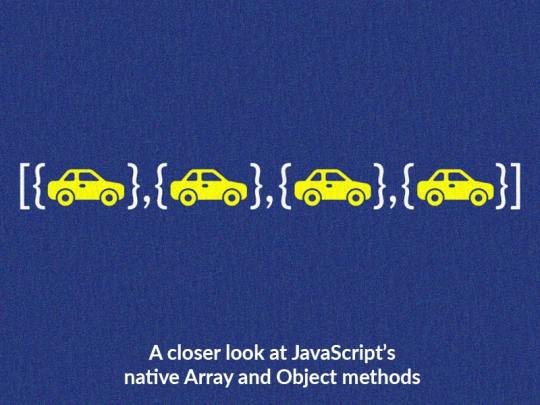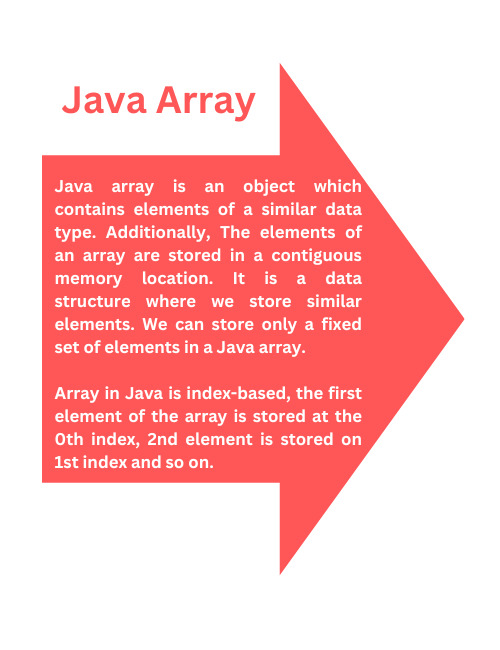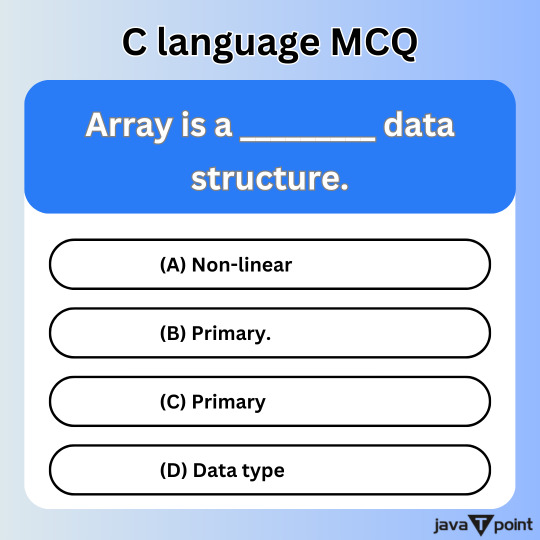#arrays in java
Explore tagged Tumblr posts
Text
Normally I just post about movies but I'm a software engineer by trade so I've got opinions on programming too.
Apparently it's a month of code or something because my dash is filled with people trying to learn Python. And that's great, because Python is a good language with a lot of support and job opportunities. I've just got some scattered thoughts that I thought I'd write down.
Python abstracts a number of useful concepts. It makes it easier to use, but it also means that if you don't understand the concepts then things might go wrong in ways you didn't expect. Memory management and pointer logic is so damn annoying, but you need to understand them. I learned these concepts by learning C++, hopefully there's an easier way these days.
Data structures and algorithms are the bread and butter of any real work (and they're pretty much all that come up in interviews) and they're language agnostic. If you don't know how to traverse a linked list, how to use recursion, what a hash map is for, etc. then you don't really know how to program. You'll pretty much never need to implement any of them from scratch, but you should know when to use them; think of them like building blocks in a Lego set.
Learning a new language is a hell of a lot easier after your first one. Going from Python to Java is mostly just syntax differences. Even "harder" languages like C++ mostly just mean more boilerplate while doing the same things. Learning a new spoken language in is hard, but learning a new programming language is generally closer to learning some new slang or a new accent. Lists in Python are called Vectors in C++, just like how french fries are called chips in London. If you know all the underlying concepts that are common to most programming languages then it's not a huge jump to a new one, at least if you're only doing all the most common stuff. (You will get tripped up by some of the minor differences though. Popping an item off of a stack in Python returns the element, but in Java it returns nothing. You have to read it with Top first. Definitely had a program fail due to that issue).
The above is not true for new paradigms. Python, C++ and Java are all iterative languages. You move to something functional like Haskell and you need a completely different way of thinking. Javascript (not in any way related to Java) has callbacks and I still don't quite have a good handle on them. Hardware languages like VHDL are all synchronous; every line of code in a program runs at the same time! That's a new way of thinking.
Python is stereotyped as a scripting language good only for glue programming or prototypes. It's excellent at those, but I've worked at a number of (successful) startups that all were Python on the backend. Python is robust enough and fast enough to be used for basically anything at this point, except maybe for embedded programming. If you do need the fastest speed possible then you can still drop in some raw C++ for the places you need it (one place I worked at had one very important piece of code in C++ because even milliseconds mattered there, but everything else was Python). The speed differences between Python and C++ are so much smaller these days that you only need them at the scale of the really big companies. It makes sense for Google to use C++ (and they use their own version of it to boot), but any company with less than 100 engineers is probably better off with Python in almost all cases. Honestly thought the best programming language is the one you like, and the one that you're good at.
Design patterns mostly don't matter. They really were only created to make up for language failures of C++; in the original design patterns book 17 of the 23 patterns were just core features of other contemporary languages like LISP. C++ was just really popular while also being kinda bad, so they were necessary. I don't think I've ever once thought about consciously using a design pattern since even before I graduated. Object oriented design is mostly in the same place. You'll use classes because it's a useful way to structure things but multiple inheritance and polymorphism and all the other terms you've learned really don't come into play too often and when they do you use the simplest possible form of them. Code should be simple and easy to understand so make it as simple as possible. As far as inheritance the most I'm willing to do is to have a class with abstract functions (i.e. classes where some functions are empty but are expected to be filled out by the child class) but even then there are usually good alternatives to this.
Related to the above: simple is best. Simple is elegant. If you solve a problem with 4000 lines of code using a bunch of esoteric data structures and language quirks, but someone else did it in 10 then I'll pick the 10. On the other hand a one liner function that requires a lot of unpacking, like a Python function with a bunch of nested lambdas, might be easier to read if you split it up a bit more. Time to read and understand the code is the most important metric, more important than runtime or memory use. You can optimize for the other two later if you have to, but simple has to prevail for the first pass otherwise it's going to be hard for other people to understand. In fact, it'll be hard for you to understand too when you come back to it 3 months later without any context.
Note that I've cut a few things for simplicity. For example: VHDL doesn't quite require every line to run at the same time, but it's still a major paradigm of the language that isn't present in most other languages.
Ok that was a lot to read. I guess I have more to say about programming than I thought. But the core ideas are: Python is pretty good, other languages don't need to be scary, learn your data structures and algorithms and above all keep your code simple and clean.
#programming#python#software engineering#java#java programming#c++#javascript#haskell#VHDL#hardware programming#embedded programming#month of code#design patterns#common lisp#google#data structures#algorithms#hash table#recursion#array#lists#vectors#vector#list#arrays#object oriented programming#functional programming#iterative programming#callbacks
20 notes
·
View notes
Text
How to convert List to Array?
Let us see how to convert List to Array:

#java#programming#javaprogramming#code#coding#engineering#computer#computerscience#computertechnology#software#softwaredevelopment#education#technology#list#array#online
4 notes
·
View notes
Text
Does a Java Course in Coimbatore Help Beginners Learn Java in Just 3 Months?
1. Java for Beginners Introduction
Can a Java course at Coimbatore teach beginners Java in 3 months? This is a popular query among beginners who wish to become programmers and join the software development industry within a short time. Java is a powerful, multi-platform language well suited for developing web, mobile, and enterprise apps. There are numerous institutes at Coimbatore providing systematic programs to train beginners to learn Java within a brief duration. Let us discuss how it can be done effectively.
2. Systematic Curriculum and Roadmap
A systematic Java course in Coimbatore would start with the basics—data types, variables, loops, and functions. The course would proceed into object-oriented programming (OOP), exception handling, and file handling. If students have a systematic roadmap to pursue, the answer to the question "Does a Java course in Coimbatore teach beginners how to learn Java within 3 months?" becomes simpler to respond in the affirmative.
3. Hands-On Projects and Real-World Practice
Real-world experience is the foundation of programming education. By working on real-world projects and assignments, students develop hands-on experience, thus speeding up learning. The majority of Java Training in Coimbatore contains capstone projects that mimic real-time development environments, making students job-ready within three months.
4. Supportive Learning Environment
Most of the training centers in Coimbatore offer a personalized and collaborative classroom learning with one-to-one guidance, doubt-clearing sessions, and online materials. These are all the must-haves when posing the question, "Does a Java course in Coimbatore help beginners learn Java in just 3 months?" Personal guidance guarantees the beginners remain on schedule.
5. Emphasis on Core and Advanced Java
A standard Java Full Stack Developer Course in Coimbatore teaches both Core Java and Advanced Java, such as JDBC, Servlets, JSP, and frameworks like Spring Boot. This whole-spectrum approach makes sure students not only learn the syntax but also how to apply Java in full-stack development in 3 months.
6. Integration of Frontend and Backend Technologies
The response to "Does a Java course in Coimbatore assist beginners in learning Java in 3 months?" becomes more persuasive when frontend technologies such as HTML, CSS, JavaScript, and backend Java tools are integrated. Full-stack courses enable students to develop dynamic applications from the ground up, setting them for varied IT careers.
7. Weekend and Fast-Track Options
There are weekend and fast-track batches available in various institutes. These are specifically meant for working professionals and students who wish to undergo the Java Course in Coimbatore within a limited period. These are aimed at intensive learning and rapid project delivery.
8. Placement and Career Support
Placement training, resume preparation, and mock interviews are included in the majority of Java Training in Coimbatore courses. By these services, the students are better prepared and more confident to enter the job market right after the 3-month course duration.
9. Learning Tools and Resources Provided
Does learning Java in Coimbatore through a course assist learners in learning Java in 3 months if they are beginners? Yes, particularly when students have access to recorded classes, e-books, coding practice websites, and online quizzes. These tools allow for ongoing learning even outside class hours.
10. Testimonials and Success Stories
Most of the students who finished their Java Full Stack Developer Course in Coimbatore within three months are now working in leading MNCs or as independent developers. These testimonials prove the merits of short-duration Java courses in Coimbatore.
11. The Power of Multi-Skill Integration
Merging Java expertise with other tech expertise such as web frameworks and database management provides a significant benefit. Bundled courses like the Digital Marketing Course in Coimbatore are also provided by some institutes to enable graduates for more extensive career prospects, making them even more productive in the current market.
12. Conclusion: Why Choose Xplore IT Corp?
So, does a Java course in Coimbatore enable beginners to learn Java in 3 months? Sure—if it's from a renowned organization such as Xplore IT Corp. We provide meticulously designed Java training, full-stack development projects with hands-on experience, and job placement, all within three months. If you are seeking a beginner course in Java in Coimbatore, an advanced course on Java Full Stack Developer Course in Coimbatore, or intensive Java Training in Coimbatore, we have it all—actual results and actual opportunities.
FAQs
1. Is it possible for a beginner to learn Java in 3 months?
Yes, provided one works diligently and is guided properly by a well-formatted Java course, beginners can be taught Java in 3 months.
2. What is the difference between Core Java and Full Stack Java?
Core Java is about learning the fundamentals of the Java language, whereas Full Stack Java comprises frontend and backend development tools and frameworks.
3. Is classroom or online Java training preferred in Coimbatore?
Both are great. Online is flexible, whereas classroom training is face-to-face support. Pick one depending on your learning style.
4. Do Java Full Stack courses have live projects?
Yes, almost all Java Full Stack Developer Courses in Coimbatore have live projects for hands-on learning and building a portfolio.
5. Does Xplore IT Corp provide placement?
Yes, Xplore IT Corp provides full placement support including interview prep, resume guidance, and access to hiring partners.
#Java programming#object-oriented programming#Java development#Java classes#Java methods#Java syntax#Java Virtual Machine#Java IDE#Java frameworks#Spring Boot#Java backend#Core Java#Advanced Java#Java database connectivity#Java Servlets#JSP programming#Java multithreading#Java collections#Java exceptions#Java arrays#Java loops#Java inheritance#Java interfaces#Java encapsulation#Java polymorphism
0 notes
Text
Essta funcion nos permite buscar un valor dentro de un array. Espero les sea de uttilidad y buen dia del trabajador!
0 notes
Text
Common Mistakes When Initializing Arrays in Java and How to Avoid Them
Learn the common mistakes developers make when initializing arrays in Java and how to avoid them. Master proper array initialization techniques and write cleaner, error-free Java code with this beginner-friendly guide.
1 note
·
View note
Text
spending half the day learning java via making a homestuck typing quirk thing and then getting followed by a homestuck blog is genuinely hysterical. anyway welcome 2 the hole in the ground i call a blog :3
#.txt#i am BAD at java btw don't- don't get ur hopes up#currently trying to learn about arrays. god help me#i have a DEGREE. IN COMPUTING.#i know what an array IS. how to USE one however-#i mean okay hypothetically i know that Too#but yknow.#in theory vs practice and all that.#i'm actually needing to figure out how to check each of the characters in an array for the reverse capitalisation tavros does#but we're GETTING THERE !#slowly !!!#its fun though i'm enjoying myself and THAT is the important thing
0 notes
Text
JavaScript’s native Array and Object methods
Think you know JavaScript? Find out how native features can handle Objects and Arrays that simplify coding. No libraries necessary!

0 notes
Text
thinking about her(GreedyStackDestroyer)
#how tf do i get her to pass the third time test 😭#how do i get that third time test under 10 ms 😭😭😭#programming#coding#java#greedystackdestroyer#shitposting#tumblr nonsense#yeah that's a fitting tag#algorithms and datastructures#Arraylists#Arrays#HashMaps#HashMap#Array#ArrayList#tower objects
1 note
·
View note
Text
my brother in fuck I remember how to rotate a min max heap but I forgot what an ARRAY in JAVA is ic kl;dJZS:SACK JDH CNKSLADJA:LJ<HNCKASLJ DHSLFIJ:V vfdjLSjvf; lk
#i was on my phone i got out my laptop to do the keysmash#i can't get over the fact that i forget you have to assign a length to a java array#and that's why an arraylist is different it comes with growing ability#exploding forever#truly the eggsistential of one year ago is dead#does not exist in my brain holy SHIT#eggsistential speaks#eggsistential job hunt crisis
0 notes
Text
tech mutuals/followers i need some help...
i almost finished c programming so...
#i have little experience with python because it was my first programming language i was taught in school#i self learned java but never finished it. i did upto arrays btw#no experience with c++ but I'm doing c so maybe it's appropriate to go for c++??#idk please vote guys 🙏
0 notes
Text
Know what Java PriorityQueue is for?
youtube
#java#100daysofcode#coding is fun#java for beginners#java online training#javaprogramming#array#priority queue#Youtube
0 notes
Text
Java Array
Let us see the definition of Java Array:

#java#programming#javaprogramming#code#coding#engineering#computer#computerscience#computertechnology#software#softwaredevelopment#education#technology#javaarray#array#definition#define#online
3 notes
·
View notes
Text
Esta funcion nos permite llenar un array con un valor. Espero les sea de utilidad!
0 notes
Text
for (String AAAAA : screaming) {
System.out.println("AHHHHHH " + AAAAA);
}
screaming [us politics, work, family, the world]
49 notes
·
View notes
Text
Those wise, old Javanese
Yesterday I discovered "Arrays of Wisdom of the Ancients", Aleksey Shipilёv's 2016 quest for the most efficient way to convert Java collections into arrays. It's a fascinating story. Aleksey explains why the conversion API is the way it is, then presents some counter-intuitive measurements.
Next he makes an important point about performance analysis:
At this point, most people make the major mistake: they run with these numbers as if they are the truth. But these numbers are just data, they don’t mean anything unless we extract the insights out of them. To do that, we need to see why the numbers are like that.
To gain such insight, Aleksey uses various profiling tools. After pursuing some related questions (which lure him back into the spiderweb-encrusted days of Java 1.6), he concludes by making another point I adore:
most of the time, the straight-forward code is fast enough, so stop philosophizing about angels on the head of a pin, and get back to work. 99.9% of applications do not need a dedicated team of performance engineers; they need instead for their developers to focus on writing clear, maintainable code, and a little bit of measurement and tuning to file off the rough edges when the code fails to meet the performance requirements.
Here's the URL, in case you want to read the original post:
#java#software engineering#coding#jvm#arrays#collections#wisdom#software development#performance#measurements#profile app#old news#tuning#computer history#efficiency#war stories#good enough
1 note
·
View note
Text

C language MCQ . . . . write your answer in the comment section https://bit.ly/48J8x0O You can check the answer at the above link at Q.no. 1
#c#cpp#programming#arrays#programminglanguage#pointers#java#python#computerscience#computerengineering#javatpoint
0 notes